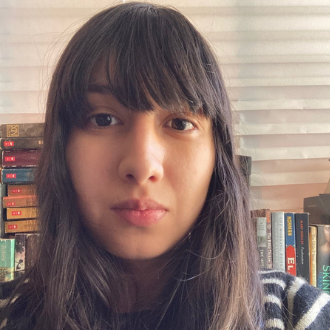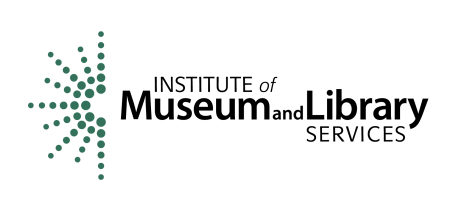Digital Navigator Profile: Melissa Rodriguez
Q&A with Melissa Rodriguez, Salt Lake City Public Library Digital Navigator

Now being piloted by Salt Lake City Public Library and the National Digital Inclusion Alliance, the Digital Navigators service model positions trained individuals to provide phone-based support for issues related to the full spectrum of digital needs.
ULC is connecting with Digital Navigators for one-on-one discussions of their work on the forefront of this exciting new initiative. Read the fourth interview in this series below, featuring SLCPL's Melissa Rodriguez.

Q&A with: Melissa Rodriguez
Digital Navigator, Salt Lake City Public Library
Melissa began working for the Salt Lake City Public Library a little over two years ago. Melissa started as an assistant at the Day-Riverside Branch before becoming involved with the Digital Navigators project.
Start out with the community you currently serve. We started the program targeting an area we knew lacked internet and computer access, but as the program progressed we have had more patrons calling in from areas all over the city and surrounding cities including those who have never used our services or have been inactive for years.
Why is this work especially critical right now?
With COVID-19, many organizations that provided internet access to patrons have shut down. The pandemic has also affected many of our patrons' employment statuses. With the job market being almost exclusively online now, it is imperative we help our community gain safe and stable access to the internet.
How has this work changed your perception of the role of libraries in meeting digital needs?
My perception has not changed. Prior to joining the project, I worked as a library assistant in the Rose Park community and the part of my job that kept me the busiest was assisting patrons with computer help, whether it was simple website access or more intensive work of teaching them how to use a computer and basic navigation.
How do you explain your daily work as a Digital Navigator in your own words?
My job is simple — I find a way to get people access to the internet. Sometimes it is simply getting them access to a device and/or internet, and sometimes it’s about helping them navigate a site and how to use the technology.
Can you share an example of feedback or an experience from this work that has been meaningful to you?
Most people that reach out are those that need help obtaining technology and internet access to be able to search for jobs or to work from home, either because they have no access to reliable transportation, child care is too expensive or because their children are attending school online and are unable to be left alone (the Salt Lake school district is completely virtual currently).
What tips do you have for other Digital Navigators or library systems who are just getting started with this work?
It is probably best to start out with the community you currently serve. We started the program targeting an area we knew lacked internet and computer access, but as the program progressed we have had more patrons calling in from areas all over the city and surrounding cities including those who have never used our services or have been inactive for years.
Assess your community, and create a dedicated line for the program. A hurdle we are currently encountering is that we are unable to reach our Spanish speakers. We are currently working out a way to create a line specifically for Spanish speakers. Fortunately, we partnered up with other organizations that have created a healthy connection within that community.
About the Digital Navigators Project
In partnership with the Salt Lake City Public Library and National Digital Inclusion Alliance, ULC is advancing a new Digital Navigators service model to help libraries address the new and intensified digital access barriers resulting from COVID-19. Now being piloted by SLCPL and NDIA through September 2021, the Digital Navigators model offers a replicable blueprint for meeting the digital needs of underserved community members via phone-based support services.
This project was made possible in part by the Institute of Museum and Library Services grant number LG-248566-OLS-20.

Learn More >
Related Articles
Walking Alongside Forsyth County Customers on the Path to Digital Equity [Interview]
Forsyth County Public Library
ULC connected with Forsyth County Public Library's Brian D. Hart (Director of Libraries), Elizabeth J. Skinner (Deputy Library Director) and Harweda Coe (Organizational Initiatives and Innovation Manager) for a discussion of the library's digital inclusion and equity leadership.
Learn More
Closing Equity Gaps with Community Partnerships: Key Resources from OCLC’s WebJunction
OCLC
Explore how OCLC’s WebJunction implements a community collaboration strategy in addressing digital equity and inclusion initiatives, improving access to civil legal justice and health equity and crisis management planning.
